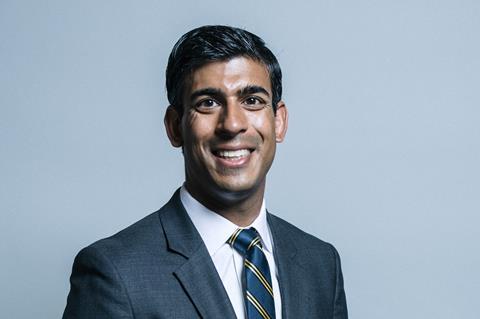
The UK government has unveiled long-awaited plans to help support self-employed people amid the coronavirus crisis.
Chancellor Rishi Sunak said those facing financial difficulties will be able to apply for a grant to have 80% of their monthly wages covered by the government, capped at £2,500 per month.
This will be calculated using average monthly profits over the last three financial years, and will last an initial three months.
The money will arrive as a lump sum at the start of June, but will be back-dated.
To qualify, their annual trading profits must have been less than £50,000 in the 2018-2019 tax year or an average of £50,000 across the three tax years up to and including 2018-2019.
More than half of the person’s income will have to come from self-employment, and to avoid fraud, the person will already have to be self-employed.
The chancellor said 95% of self-employed people would be covered.
Creative sector reaction
The government has come under pressure from creative sector unions, including Bectu and Equity, for not extending the same support to the UK’s 5 million self-employed workers and freelancers as they unveiled for staffers last Friday.
However, trade bodies for the sector, which has more than double the national average of self-employed workers (30%), have cautiously welcomed the new plans.
Adrian Wootton, Chief Executive of the British Film Commission said: “The financial impact of the widespread shut down of UK production has been a reality faced by our talented workforce and these interventions will help considerably in ameliorating the effects of this unprecedented situation.”
Philippa Childs, head of Bectu, said in a statement: “Bectu has pushed incredibly hard for freelancers and the self-employed to have parity with employees and the scale of the chancellor’s announcement clearly sets out to achieve that.
“However, we won’t stop and there are still many details to work through including how those who have paid themselves through dividends will fit into this scheme and also the time-scale. We know that the benefits system is under intense pressure with a five week wait for payments to be made and the self-employed and freelancers should have access to the coronavirus business interruption loans made available by the government.
“We are committed to working with the Treasury to ensure as many people as possible can be covered by this scheme and sharing information across the creative industries.”
Caroline Norbury, CEO of the Creative Industries Federation said the plan was “a victory for the creative industries” but criticised the time scale.
“We now must ensure that this package is comprehensive and interim relief is immediately accessible,” she said. “Although the measures announced today are welcome, it is vital that they are implemented as a matter of urgency, and certainly much quicker than the proposed timeline of June - two months later than those on payroll. Self-employed workers have outgoings and business expenses due immediately, which £94.25 a week in Universal Credit payments simply will not cover. They cannot wait three months to be paid. It is vital that government implements an interim basic income for the self-employed, until the scheme is fully operational.”
“We are seeking urgent clarity for those creative workers who may be most in need and fall between these schemes including those who commenced self employment after April 2019, recent graduates, those paid in dividends, temporary workers and those short term contractors normally paid by PAYE. We must ensure that these packages are truly comprehensive and accessible to all.”















![[L-R]: Amanda Villavieja, Laia Casanovas, Yasmina Praderas](https://d1nslcd7m2225b.cloudfront.net/Pictures/274x183/6/4/1/1471641_pxl_20251224_103354743_618426_crop.jpg)









No comments yet